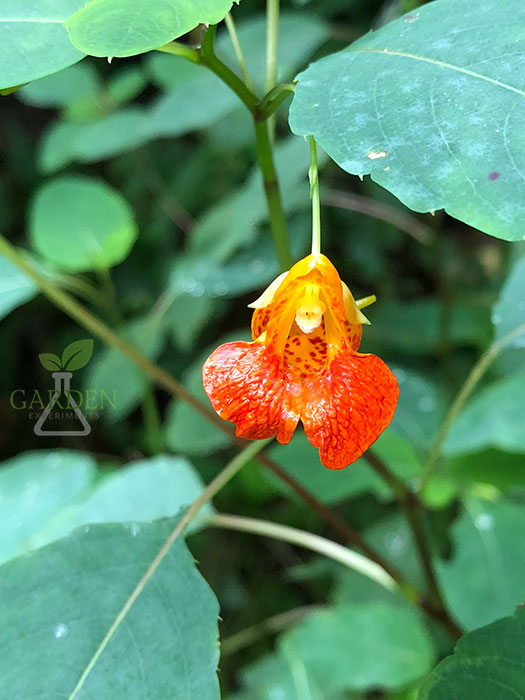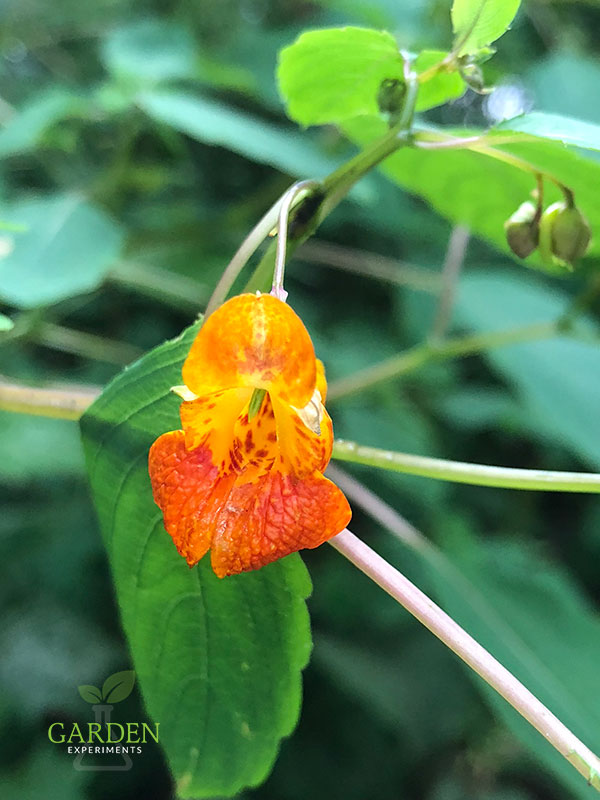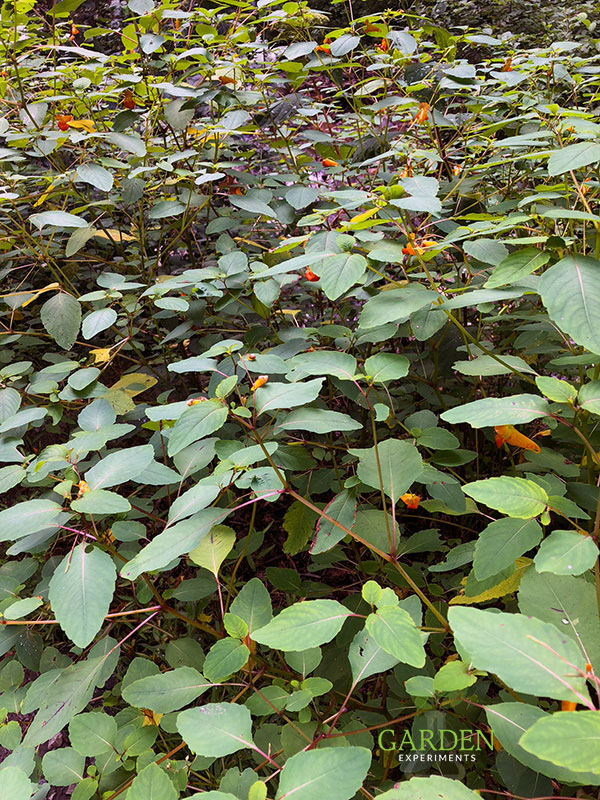If you’ve got soil that stays wet most of the time, then spotted jewelweed is the plant for you. It’s native to most of the lower 48 states and prefers shade to part-shade – even better!
In its native habitat, you’ll find it alongside roads in ditches that stay wet most of the time, alongside a river or stream, in wetlands or boggy places, and other moist soil areas. It prefers shady areas, though it can take some morning sun.
Wildlife Uses of Spotted Jewelweed
The orange flowers are the best part about this plant (besides the fact that it grows in two hard-to-find-plants-for soil/light combinations). Each plant will grow up to 4 or 5 feet and produce multiple light orange/dark orange spotted blooms.
The flowers of spotted jewelweed attract ruby-throated hummingbirds, butterflies, and bees that will feed on the nectar. Hummingbirds are the primary pollinator of this plant. Blooms begin in mid-summer and continue into the fall.
Other wildlife feeds on the stems and leaves of the plant – white-tailed deer, mice, caterpillars (moths), and bobwhite quail. Birds and mice will eat the seeds. However, generally, this plant is considered moderately deer-resistant.
This plant is an annual and self-seeds.
Traditional Uses
While humans have been known to use the juice from the leaves/stems to treat poison ivy rashes, the berries of the plant may be toxic, especially for children.
Name Derivation
It’s an interesting annual native plant with really pretty flowers that bloom in July through October. Another common name for it is spotted touch-me-not plant – a name born from the seedpods that will explode upon contact when the seeds are ripe. A fun pastime for kids!
How to Grow Spotted Jewelweed
The scientific name for spotted jewelweed is Impatiens capensis. This plant has a taproot, making it difficult to transplant. The seeds may require treatment in a refrigerator for a couple of months (maybe even twice with a warm, moist period in between) prior to planting in fall in order to germinate.

Learn more about this native plant in this short video:


